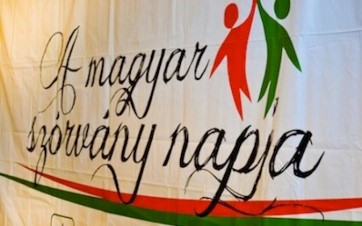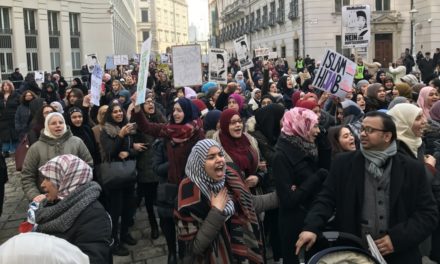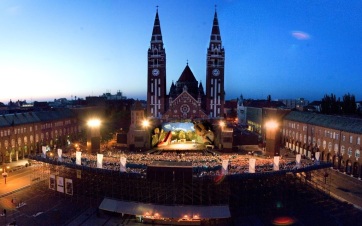Today is the day of the Hungarian diaspora. On November 3, 2015, the Parliament declared November 15, the day of the birth and death of the Transylvanian prince Gábor Bethlen (1580-1629), as the Day of the Hungarian Diaspora, in accordance with its responsibility for the Hungarians beyond the border, as stipulated in the Basic Law. The Parliament called on the institutions and organizations, and at the same time invited the citizens to dedicate a special day to the support of the scattered Hungarians who are an integral part of the nation, and from this year to celebrate this day together in a dignified setting.
Compilation of the MTVA Press Archive:
On February 27, 2011, the Nagyvárad congress of the Hungarian Democratic Union of Romania (RMDSZ) declared November 15 as the day of the Hungarian diaspora, which has been celebrated in Transylvania since 2011. The decision was justified by the fact that Hungarians living in groups, minorities and scattered outside the borders of the mother country struggle with specific problems, and among them, those living in scattered places are the most at risk.
On the Day of the Hungarian Diaspora, the culture of the people living in the diaspora and their everyday life is presented. By scattered, we mean a minority that has become a minority in such a place - that is, not as a result of migration - and does not have a coherent territorial relationship, that lives in a foreign language environment in the Carpathian Basin and Moldavia, and as a result of assimilation gradually loses its block-like character. The scatter also depends on the population of the given settlement, the existence of its school system and other institutions, and its level of development. Its population is difficult to determine: in the Carpathian basin, it fluctuates between 200 thousand and 1 million. The dispersion process is accelerating, more and more of the Hungarians living across the border are living this way, and the language policy of the given country has a decisive influence on their survival.
Since the primary problem for those living in the diaspora is the means of maintaining language and culture, the use of the mother tongue in public institutions, a clear diaspora strategy of the motherland is needed. Ensuring the survival of Hungarians in the diaspora is the most difficult, so separate programs must be created even for each area in order to stop the almost unstoppable processes. To this end, the dispersion-diaspora working group of the Forum of Hungarian Representatives of the Carpathian Basin was established in 2011. The motherland supports the Hungarian organizations and institutions that are the bastions of Hungarians living in the diaspora with significant sums.
The consultation with the people living in the scattered areas is ongoing, several institutions and programs have been and are being supported by the Gábor Bethlen Fund, the aim is to strengthen these communities. In the framework of the Sándor Petőfi program launched by the Hungarian government in 2015, scholarship holders support scattered communities of Hungarians abroad in Romania, Ukraine, Serbia, Croatia, Slovenia, Slovakia, the Czech Republic, Bosnia-Herzegovina, North Macedonia and Poland. teaching the Hungarian language, folk dance and folk music again.
The location of the central celebrations held for the first time in Romania on November 12-13, 2011 was Déva in Hunyad County. At the scattered conference of the RMDSZ, it was determined that the establishment, operation and development of scattered colleges significantly contribute to the initiation and strengthening of mother-tongue education in those areas where the conditions for Hungarian-language education are not provided. On the occasion of the holiday, the scattered council of the Transylvanian Hungarian National Council was established in Brasov.
In 2012, the RMDSZ announced that it had launched a dispersion manager service, as part of which it supports the operation of 14 dispersion colleges, and tries to prevent the assimilation of scattered Hungarians who represent less than ten percent of their settlements. The organization also launched a monument adoption program for the small Hungarian communities in Transylvania. The RMDSZ wants to increase the attractiveness of mother-tongue education by expanding the so-called after-school program (afternoon sessions) after the establishment of the scattered dormitory system. In 2019, on the occasion of the Day of the Hungarian Diaspora, the RMDSZ finalized its diaspora action plan for the period 2020-2024, which would, among other things, strengthen the cooperation between Székely and the diaspora with youth exchange programs, and builds more strongly than before on the reality of the 21st century communication society: networking, for cooperation, deals with the identity-preserving, community-building, mother-tongue care role of churches.
Since 2013, the celebration of the Hungarian diaspora covers the entire Carpathian basin.
Source: Vojvodina Ma












